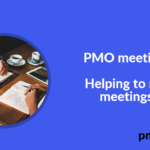 This may appear to be a strange topic to cover in a post. However, if you stop to think, a meeting has usually been organised for a very good reason (if not do not hold the meeting). It involves a number of people giving up valuable time which is a cost to an organisation. Some people may have very limited availability meaning you have to book and coordinate slots many weeks in advance.
This may appear to be a strange topic to cover in a post. However, if you stop to think, a meeting has usually been organised for a very good reason (if not do not hold the meeting). It involves a number of people giving up valuable time which is a cost to an organisation. Some people may have very limited availability meaning you have to book and coordinate slots many weeks in advance.
Due to these and many other reasons, a lot of time and effort will be invested into the preparation of the material for the meeting. Defining the objectives, creating the meeting pack, etc. However, while you the material could be very good, this can all mean nothing if the logistics of the meeting fail.
Typical logistic failures
- Meeting room is not booked or double booked
- You turn up for the meeting only to find that the meeting room has not been booked or somebody else is already in the room as they believe they have booked the room.
- Meeting room booked for incorrect duration
- You may have the meeting booked for 2 hours, at the 1 hour point there is a knock on the door as somebody else has the meeting room booked. This is very frustrating if you are making progress in the meeting.
- Conference or video call booking
- The conference or video conference lines have not been booked or, you dial in to find they are being used by somebody else. A variation of this is that you are half way through the meeting and other people start to join.
- Conference or video call does not work
- While the reliability of conference and video conference has improved over recent years, there is still a risk that they will fail or the quality will be poor.
- Equipment missing
- There is nothing worse than turning up to the meeting room to find the conference call telephone or remote to activate the video conference is missing.
- Meeting room capacity
- The room booked is of insufficient size and / or does not have enough seats.
These and other logistic issues can delay and disruption, or in some cases, result in the cancellation of the meeting. All very frustrating after the effort to coordinate the attendees and prepare the material.
Proactive actions
Check room booking
At least a couple of days before the meeting check that the booking is in place. Confirm start and end time. Make sure that you check that the room that is booked is correct on the meting invite and any meeting materials such as agenda.
Check attendees
Check how many people have been invited against the capacity of the room. Be aware that additional attendees may have been invited over time and that some who may normally use conference facilities to join may attend in person.
Conference and video facilities
When you check the booking is still in place, check that the room has the facilities that you require.
Check the room
If at all possible. check the room the day before the meeting to ensure it does have the capacity you require, enough seats, whiteboard, etc. Perform a check on the conference and video conference facilities to ensure they work and that you know how to operate them.
Book conference and video conference support
If you are uncertain how to use the facilities, if it is a room you have not used before or if it is a very important meeting, you may want to book technical support. Then if anything goes wrong you have the technician ready to fix the issues.
Book the meeting room longer than needed
This is a good idea for important meetings. Book up to 30 minutes earlier than required and up to 30 minutes longer. This ensures that you are not waiting outside the room when the preceding meeting overruns, you have time to set-up, make sure equipment works, correct number of chairs, etc. Extending the meeting allows you time to close important items instead of being rushed out of the room by the next meeting.
In summary
Logistics failure can have a devastating impact on your meeting. Following these practical steps will help ensure that you eliminate the risks.






